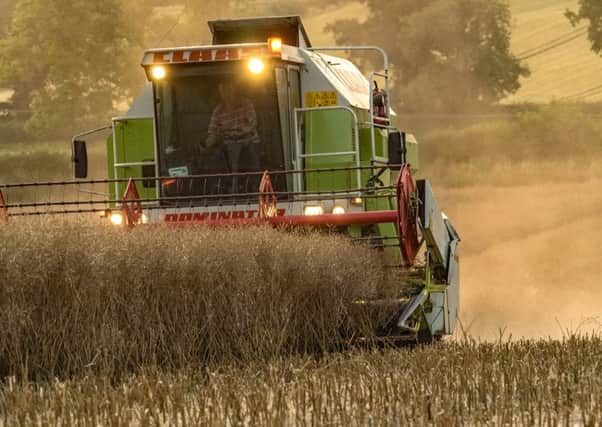Leader comment: Devolved governments entitled to input on post-EU funding


This issue has been raised in these pages previously, in particular the reliance of out-lying communities on EU funding to improve infrastructure and transport links. Across the Highlands and islands, there are plenty of examples of bridges and roads which would not have happened without EU regional aid assistance.
It is argued by Brexit supporters that the EU cash only represents a redistribution of finance which the UK pays into the UK; in other words, this isn’t EU funding at all. But there has been no satisfactory answer to the question of whether or not the UK government will definitely allocate that same level of funding to regional assistance – or do something else with it entirely.
Advertisement
Hide AdAdvertisement
Hide AdProfessor Bell’s concern assumes funding will continue, but raises the question of who would be responsible for area-based policies. Would devolved governments be given that responsibility, or would Westminster retain control? If it is to be the latter, then trouble is likely to be brewing, causing further friction in relationships between the different levels of government.
Ultimately, the biggest victims of a power struggle may not be politicians, but those whose interests are directly affected by the agricultural, regional and rural policies which are in doubt.
But the issue also highlights a problem for Theresa May’s government as she negotiates a Brexit settlement for all of the UK. The devolved governments have a clear interest in the continuation and allocation of whatever is to replace EU funding, and yet these administrations remain on the outside looking in, being told that there are no special arrangements available for parts of the UK.
The argument that the Westminster government should be allowed to negotiate a nationwide exit settlement is reasonable, but it is no less reasonable to believe that the Scottish Government should have direct input into the fate of EU funds currently allocated north of the border. It should be possible to achieve this level of involvement without compromising the overall negotiating position.
As Professor Bell says, the devolved parliaments have a pivotal role to play in working out post-Brexit arrangements. If Westminster chooses to ignore or simply overlook their input, and then retains control of policies which are specific to geographical areas, what we will have in effect is a reversal of devolution. This would be a strategic and political mistake, and would come at a time when any diminution of Scotland’s powers would have a direct bearing on the constitutional debate.
With a second independence referendum increasingly plausible, the post-Brexit carve-up requires to be handled with a sensitivity that Westminster may not yet have realised.